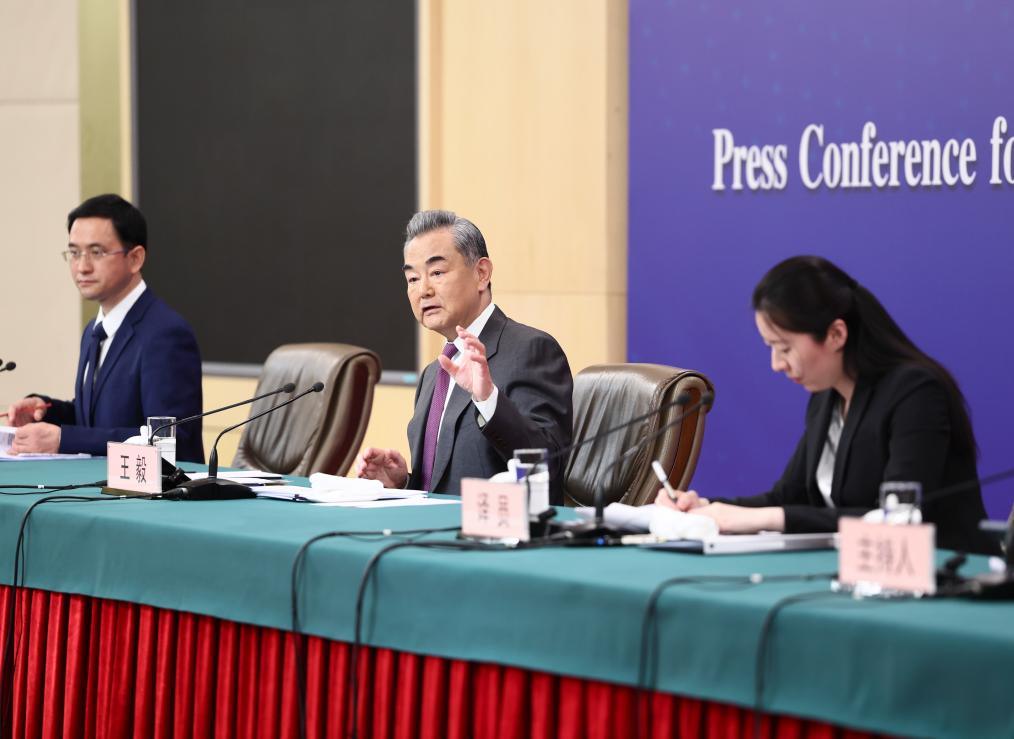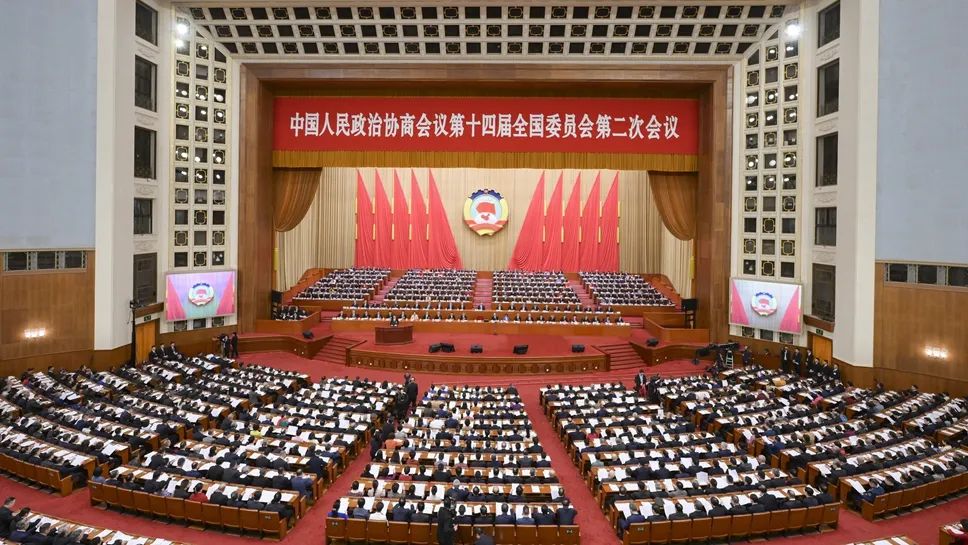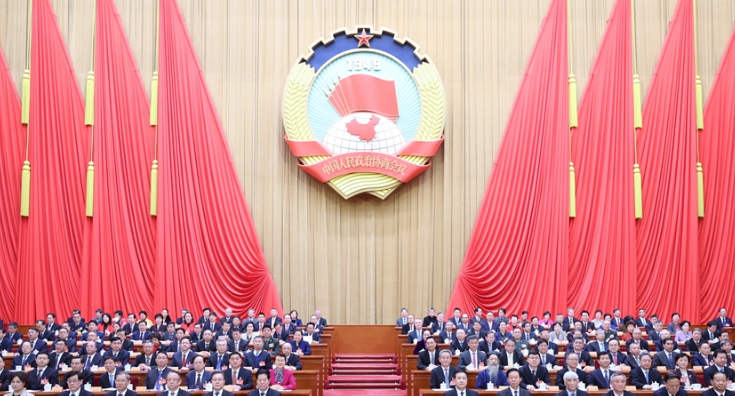2012年4月22日,国务院总理温家宝与德国总理默克尔共同出席德国汉诺威工业博览会开幕式并发表题为《坚持改革开放,推动创新发展》的演讲。全文如下:

坚持改革开放,推动创新发展
——在汉诺威工业博览会开幕式上的演讲
中华人民共和国国务院总理 温家宝
(2012年4月22日)
尊敬的默克尔总理,
女士们、先生们:
很高兴在中德建交40周年之际出席汉诺威工业博览会。汉诺威工博会是当今世界规模最大、最具影响力的综合性工业盛会,是“世界工业发展的晴雨表”。25年前,中国首次担任工博会合作伙伴国,有力推动了中国与世界各国的贸易、投资和技术交流合作。今天,中国再次担任工博会合作伙伴国,中国和德国这两个世界上最重要的制造业大国紧密合作,协同推动全球工业界对话与合作,必将对世界工业的创新与发展发挥更加重要的作用。我谨对本届工博会的举办表示热烈祝贺,对默克尔总理和德国政府所做周到安排表示衷心感谢,并预祝工博会取得圆满成功!
新中国成立特别是改革开放以来,中国工业化取得了举世瞩目的成就。1978年到2011年,国内生产总值年均增长9.9%,从全球第10位跃居第二位;我们建成了完备的工业体系,全球500多种主要工业产品中,中国有220余种产量位居世界前列;进出口贸易总额从206亿美元增长到3.64万亿美元,从全球第29位上升到第二位。今天的中国,已经成为一个名副其实的制造业大国。中国工业化快速推进,使综合国力大幅提升,人民生活明显改善,国际地位和影响力显著提高。
中国用30多年时间走过了发达国家上百年的工业化历程,不仅创造了巨大的物质财富,也得到了一些重要启示。
坚持市场取向改革。改革是中国经济发展和社会进步的永恒动力。中国工业化进程加快的根本原因,是实现了从高度集中的计划经济体制向充满活力的社会主义市场经济体制的转变。改革激发了企业的活力,使企业成为自主经营、自负盈亏的市场主体。改革释放出社会蕴藏的巨大潜力,数以亿计的农村富余劳动力从农业进入非农产业,从农村进入城市,城镇化率从1978年的17.9%提高到2011年的51.3%,劳动、资本、知识、技术和管理的活力竞相迸发,成为中国工业化的强大动力。
坚持扩大对外开放。中国工业化进程加快推进的重要途径,是广泛参与国际分工、国际交换和国际竞争,充分利用两个市场、两种资源。特别是加入世贸组织后,中国经济全面融入世界,大大加快了工业化进程。截至2011年底,在中国的外商直接投资累计约1.16万亿美元,当年吸收外资1160亿美元,已连续19年居发展中国家首位。外资企业带来了先进技术和管理经验,成为中国工业化的重要力量和中国经济的重要组成部分。越来越多的中国企业走向国际市场,成为推动世界经济增长的新生力量。
坚持依靠科技创新。我们紧紧把握世界经济科技发展趋势,通过科技创新,掌握了一批具有自主知识产权的关键技术,在制造业领域大大缩小了与发达国家的技术差距。我们高度重视发展教育事业,目前中国高校在校学生规模超过2300万人,是1978年的27倍,为工业化进程提供了坚实的人才保障。2011年,中国的发明专利授权量上升到世界第三位,全国技术交易市场规模达到4760亿元。科技教育成为促进我国工业跨越式发展的重要支撑。
坚持协调推进工业化城镇化和农业现代化。对于中国这样一个有着十几亿人口的大国来说,立足国内解决粮食和主要农产品供给问题,始终是治国安邦的头等大事。虽然农业份额会下降、农村人口会减少,但农业在国民经济中的基础作用不会改变。我们坚持在工业化、城镇化深入发展中同步推进农业现代化,为国民经济平稳较快发展奠定了坚实基础。
女士们、先生们:
中国的工业化没有完成,“中国制造”总体上还处在国际产业链的中低端,与国际先进水平差距很大。中国工业化面临的突出矛盾和问题,主要是:产业发展模式粗放,市场竞争力不强,科技创新能力不足,资源利用效率不高。实现工业化仍然是中国现代化进程中艰巨的历史任务。对此,我们的认识是清醒的。我们将坚持推进创新型国家建设,加快转变经济发展方式和调整经济结构,大力推动“中国制造”向“中国创造”转变。坚持以信息化带动工业化,以工业化促进信息化,努力走出一条科技含量高、经济效益好、资源消耗低、环境污染少、人力资源优势得到充分发挥的新型工业化路子。
女士们、先生们:
当前国际金融危机没有结束,世界经济复苏充满艰难曲折。这场危机给全球工业发展造成了巨大的冲击,也带来了新的机遇。战胜这场国际金融危机,是全球工业界的重大使命。
大力发展实体经济。这是实现世界经济稳定发展的根基。引发这次国际金融危机的一个重要原因,就是一些发达经济体虚拟经济过度膨胀、与实体经济脱节;世界经济迟迟走不出危机阴霾,也与实体经济缺乏新的增长点有关。中德两国经济在这场危机冲击中能够率先实现稳定增长,主要是因为两国长期重视实体经济发展,有坚实的实体经济基础。我们要从国际金融危机中汲取经验教训,引导更多的人力、财力和物力投向实体经济,营造更加有助于扩大就业和发展实体经济的环境,推动世界经济实现强劲、平衡、可持续增长。
大力推动科技创新。这是推动世界经济复苏的强大动力。从历史上看,大的经济危机往往伴随着新的科技革命;经济复苏往往离不开技术创新。全球正在进入空前的创新密集和产业振兴时代,各领域的科技创新层出不穷,新的市场、新的需求和新的经济增长点正在形成。每个国家和企业都要有远大的目光,紧紧把握世界科技发展的新趋势和经济社会发展的新要求,推动世界经济创新发展。
大力推进开放合作。这是促进共同发展繁荣的必然选择。汉诺威工博会的一项重要使命,就是促进各国经济技术合作交流。每年大量优秀科技成果从这里走进市场,走向世界,这极大增强了工博会的魅力,给我们带来深刻启迪。我们要继续深化国际经贸合作,坚决反对各种形式的保护主义。加快完善全球经济治理,使之朝着更加公正合理的方向发展。携手应对气候变化、生态恶化、疾病和自然灾害、能源资源和粮食安全等全球性问题挑战,共同建设人类美好家园。
女士们,先生们:
中国工业化在相当长时期内还会快速发展,蕴藏着巨大发展潜力和商机,这不仅属于中国企业,也属于世界各国企业。我愿意重申,中国坚持对外开放的基本国策决不会改变。我们将继续完善法律法规和政策,扩大市场准入,加大知识产权保护力度,在自主创新产品认定、政府采购等方面对所有在中国依法注册的企业一视同仁,为各国企业营造一个更加公平、透明、稳定、可预期的发展环境。参加汉诺威工博会的企业都是全球工业界的翘楚和生力军,我们真诚欢迎各国企业积极参与中国改革开放进程,共享中国繁荣进步的机遇和成果!
谢谢大家!
Promoting Reform and Opening-up and Boosting Innovation and Development
Speech by H.E.Wen Jiabao Premier of the State Council of the People's Republic of China At the Opening Ceremony of the Hannover Messe 2012
2012/04/23
Dear Chancellor Angela Merkel,
Ladies and Gentlemen,
It gives me great pleasure to attend the Hannover Messe on the occasion of the 40th anniversary of China-Germany diplomatic relations. Known as the barometer of the global industry, the Hannover Messe is the world's largest and most influential comprehensive industrial fair. Twenty-five years ago, China became the Hannover Messe's Partner Country for the first time, which gave a strong boost to China's trade, investment and technical exchanges and cooperation with other countries. This year, China has once again become the Hannover Messe's Partner Country. As two of the most important manufacturing countries in the world, China and Germany are committed to working closely to promote dialogue and cooperation of the global industries, and this will surely play a more important role in advancing global industrial innovation and development. I wish to express warm congratulations on the opening of the Hannover Messe 2012 and wish this event a great success! I also express my heartfelt appreciation for the warm hospitality extended to us by you, Chancellor Merkel, and the German government.
Since the founding of the People's Republic of China, and especially since its reform and opening-up program started, China has achieved tremendous progress in industrialization. From 1978 to 2011, China's GDP grew at an average annual rate of 9.9%, moving from the tenth place to the second one in the world. We have established a complete industrial system. China leads the world in the output of about 220 out of over 500 major industrial products. Its total volume of export and import surged from US$20.6 billion to US$3.64 trillion in 2011, rising to the second place in the world from the 29th in 1978. All this shows that China has become a major manufacturing country. Rapid industrialization has greatly enhanced China's overall national strength, significantly improved lives of the Chinese people and greatly bolstered China's international standing and influence.
It has just taken China over 30 years to achieve what took developed countries a hundred years to accomplish in industrialization. In this process, China has not only created enormous material wealth, but also gained important historical experience.
We should firmly carry out market-oriented reform. Reform is the unending source of power driving China's economic development and social progress. What has made rapid industrialization in China possible is the country's transformation from a highly-centralized planned economy to a vibrant socialist market economy. The reform has energized Chinese companies and turned them into self-operating market participants responsible for their own profits and losses. The reform has also released immense potential in the society. Rural labor force of several hundred million have found non-farming jobs and moved to cities. China's urbanization rate, which was just 17.9% in 1978, reached 51.3% last year. By fully tapping the role of labor, capital, knowledge, technology and managerial expertise, China has created strong impetus for its industrialization process.
We should continue to open China to the world. To speed up China's industrialization, it is important for it to fully participate in international division of labor, exchanges and competition and to fully utilize both domestic and foreign markets and resources. Since its accession to the WTO, in particular, China has fully integrated itself into the world economy, thus accelerating its industrialization. By the end of 2011, foreign direct investment in China had totaled US$1.16 trillion. Last year alone, China absorbed US$116 billion in foreign direct investment. For 19 consecutive years, China led the developing countries in attracting foreign investment. Foreign companies have brought advanced technical know-how and managerial expertise to China and become an important force driving China's industrialization. Indeed, they have become an integral part of China's economy. At the same time, more Chinese companies have entered the global market and are becoming a new force for promoting global economic growth.
We should promote scientific and technological innovation. We have closely followed the trend of the development of science and technology in the world and pursued innovation at home. We have developed a number of key technologies with independent intellectual property rights, which have greatly narrowed China's technological gap with developed countries in the manufacturing sector. China gives high priority to education. There are now over 23 million students in Chinese universities and colleges, 27 times as many as in 1978, and they provide a huge pool of educated personnel for industrialization. In 2011, the number of authorized patents in China rose to the third place in the world, and the total value of China's technology trading market reached 476 billion RMB yuan. Science, technology and education are playing a major role in advancing leapfrog industrial development in China.
We should promote industrialization, urbanization and agricultural modernization in a coordinated way. For a big country like China with a population of over one billion, to ensure domestic supply of grain and other major agricultural products is crucial to maintaining its stability and prosperity. Despite drop of agriculture's share in GDP and decrease in rural population, the fundamental role of agriculture in China's economy will not change. We are committed to promoting the modernization of agriculture in the process of industrialization and urbanization. This has laid a solid foundation for ensuring steady and robust economic growth.
Ladies and Gentlemen,
China is still in the process of industrialization. "Made in China" products are generally still at the medium and low rungs of international industrial chain, and have a long way to go to catch up with the advanced level. China is confronted with major challenges and problems in industrialization, including an inefficient model of industrial development, lack of market competitiveness, weak capacity for scientific and technological innovation and low efficiency in the use of resources. We are keenly aware that to realize industrialization is still a daunting historic task China faces in its modernization drive. So, we will continue to build an innovation-driven country, accelerate the shift of growth model and adjustment of economic structure, and work hard to achieve transition from "made in China" to "created by China". We will ensure that the development of an information-based society and industrialization will reinforce each other and thus embark on a new path of industrialization based on the development of science and technology, with good economic returns, low resource consumption and less pollution and which fully taps into our strength in human resources.
Ladies and Gentlemen,
The international financial crisis has not ended, and the path to world economic recovery is full of potholes. While this crisis has dealt a heavy blow to global industrial development, it has also created new opportunities for it. To overcome the international financial crisis is an important mission for global industries.
We should vigorously grow the real economy. This is crucial for achieving the stable growth of the global economy. A major cause of the financial crisis is that the virtual economy in some developed countries has expanded excessively and become divorced from the real economy. And the lack of new growth areas in the real economy has hindered recovery of the world economy. China and Germany have taken the lead in fighting the crisis and realizing steady growth, because we have always given priority to growing the real economy and thus have a solid real economy as the foundation for growth. We should draw lessons from the international financial crisis, put more human resources as well as financial and material input into the real economy, foster an environment that can create more jobs and facilitate the growth of the real economy, and ensure strong, balanced and sustainable growth of the global economy.
We should work hard to promote scientific and technological innovation. This will create a powerful impetus for promoting world economic recovery. Historically, major economic crises were followed by new scientific and technological revolution, and economic recovery was not possible without technological innovation. The world is entering an age of intensive innovation and industrial revitalization never seen in history. Technological innovation in various sectors is flourishing, and new markets, new demands and new economic growth areas are emerging. Every country and every company should have a broad vision, closely follow the latest progress in science and technology and new demand created by economic and social development, and boost innovation-based growth of the global economy.
We should energetically enhance openness and cooperation, which is the right choice to promote common development and prosperity. An important mission of the Hannover Messe is to strengthen economic and technological cooperation and exchange among countries. Every year, a lot of scientific and technological advances presented here are absorbed by the market and the world. This has not only greatly increased the appeal of the Messe, but also showed us the right approach to take. We should continue to deepen international business cooperation and resolutely reject protectionism in all forms. We should move faster to improve global economic governance and make it fairer and moreequitable. We should work together to meet global challenges such as climate change, ecological degradation, epidemics, natural disasters, and energy, resource and food security, and make the world a better place for all of us.
Ladies and Gentlemen,
China's industrialization will continue to advance rapidly for a long time to come. This will create huge development potentials and business opportunities for both Chinese and foreign companies. I wish to reiterate here that China will remain unchanged in its commitment to the basic state policy of opening-up. We will continue to improve our laws, regulations and policies, expand market access, strengthen IPR protection, ensure there is a level playing field for all companies legally registered in China when it comes to accreditation of products of indigenous innovation and government procurement, and foster a more equitable, transparent, stable and predictable business environment for foreign companies. Companies attending the Hannover Messe are both leaders and promising newcomers in global industries. We sincerely welcome foreign companies to actively participate in China's reform and opening-up endeavor and share both the opportunities and fruit of China's prosperity and progress.
Thank you!
 外交部
外交部
 2012-09-26
2012-09-26
 外交部
外交部
 355次
355次


 点赞(0)
点赞(0)

 收藏
收藏

 收藏资讯
收藏资讯

 收藏资讯
收藏资讯

 收藏资讯
收藏资讯

 收藏资讯
收藏资讯